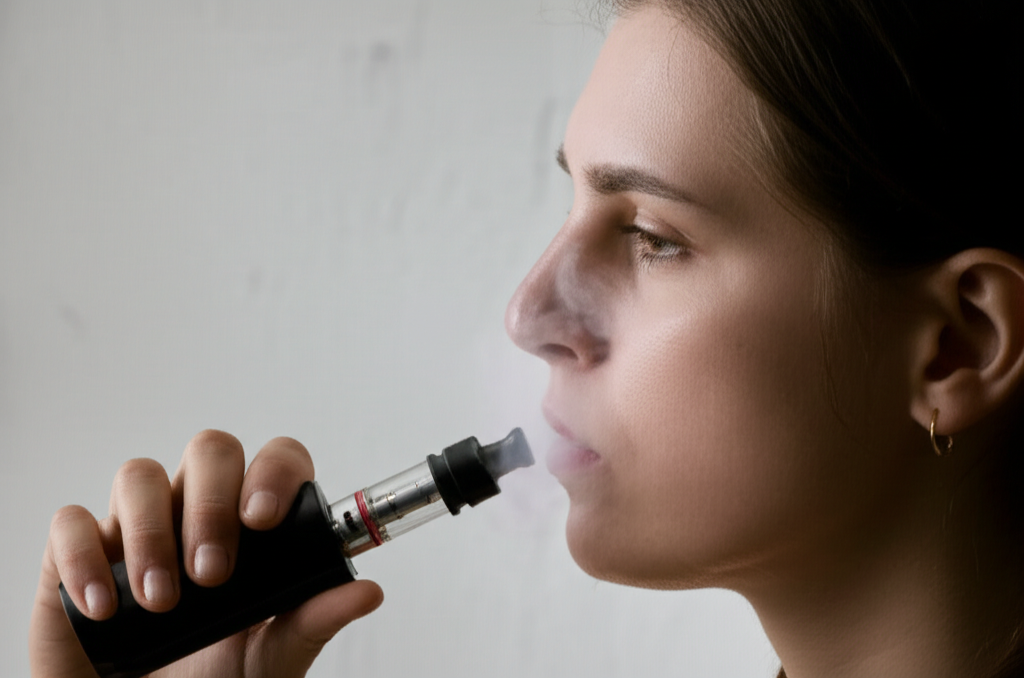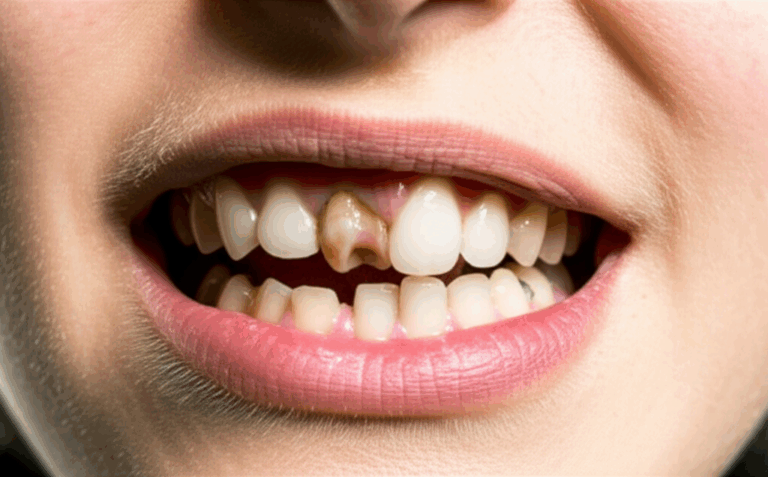
Can Vaping Cause Dental Problems? Understanding the Oral Health Risks of E-Cigarettes
Have you ever taken a puff from your vape and later thought, “Could this be hurting my teeth or gums?” You’re not alone. As e-cigarettes and vapes become more common, people are getting more worried about how they affect your mouth—and these worries are valid. Many vapers notice things like a dry mouth, sore spots, or bad breath, but aren’t sure if vaping is the cause. I’m here as a friendly guide to break down what experts know so far, what vaping can do to your smile, and how you can actually take care of your teeth and gums—whether you vape, want to quit, or are just interested.
Table of Contents
- The Vaping–Oral Health Connection: What’s the Concern?
- Key Dental Problems Directly Linked to Vaping
- The Science Behind Vaping’s Oral Health Impact
- Vaping vs. Smoking: Which Is Worse for Your Mouth?
- How to Protect Your Oral Health While Vaping (and Beyond)
- When to See a Dentist: Warning Signs You Shouldn’t Ignore
- The Empowered Takeaway: Steps for a Healthier Smile
- Frequently Asked Questions
The Vaping–Oral Health Connection: What’s the Concern?
Let’s get to the point: Can vaping cause dental problems? The short answer is yes—vaping can hurt your teeth and gums, and the risks are real. More and more signs point to this being true, and dentists agree: vaping isn’t just “harmless water vapor.” It has its own problems for a healthy mouth.
Why Do People Worry About This?
When e-cigarettes first came out, a lot of people thought, “Maybe these are safer than smoking—even for my teeth?” Sure, e-cigs don’t have the tar and a lot of the bad stuff in normal cigarettes, but they’re not good for your mouth either.
The American Dental Association and World Health Organization have warned people about vaping—especially since so many young people do it now. Here’s the real issue: most people don’t know that vape liquids, flavors, and even “nicotine-free” options can mess with your mouth, leading to cavities, gum problems, and more.
Don’t worry—you don’t need to be a dentist to get what’s going on. Let me break it down for you.
Key Dental Problems Directly Linked to Vaping
Vaping doesn’t look, taste, or smell like smoking—but that doesn’t mean it’s easy on your mouth. Here are the main problems, in plain words.
1. Dry Mouth: Your Mouth Feels Parched
Have you ever noticed your mouth feels super dry after vaping? That’s not just in your head. Most vape liquids use propylene glycol (PG) and vegetable glycerin (VG)—these soak up water. When you inhale vape, it pulls out the moisture from your mouth and throat. Your spit dries up—which is bad, because saliva washes away food and germs, keeping your teeth clean and your breath fresh.
Why does this matter?
- Less spit means food and germs stick around longer.
- Bigger chance of getting cavities, gum problems, and stinky breath.
How common is it?
Studies show up to 57% of vapers complain of dry mouth, while only about 10–15% of non-vapers have it.
2. Gum Disease: Your Gums Get Weak
Nicotine does more than make you want to vape again. It shrinks blood vessels, making it harder for your gums to get blood and heal. This makes them easy targets for germs. Your gums can get sore, red, and may bleed. Over time, this leads to gingivitis (early gum disease) or periodontitis (serious gum problems that attack the bone holding your teeth).
What to watch for:
- Puffy, red, or sore gums
- Gums bleed when brushing or flossing
- Gums shrink—teeth start to look longer
Heads up:
Your gums might not bleed when you vape, but that could just mean the nicotine is hiding the real problem.
3. More Cavities: Sweet Flavors, More Decay
Vape juice is often sweet or acidic. When you vape:
- Dry mouth gives germs and leftover sugar a chance to stick around.
- Flavors often stay on your teeth, feeding the germs that cause cavities.
- Acidic vape liquid (think fruit flavors) can soften your teeth and make them easier to damage.
A big study found that vapers have 2.7 times the risk of getting cavities than non-vapers.
4. Enamel Erosion: Your Tooth’s Shield Wears Down
Your enamel is like armor for your teeth. Acidic vapors from vaping (like sour flavors) slowly wear it away. You might notice:
- Teeth feel sensitive to hot, cold, or sweet stuff
- Teeth look dull or more yellow
Vaping’s acid isn’t so different from what soda does to your teeth—some vape liquids are as sour as cola.
5. Bad Breath: Smells That Linger
When you have less saliva and more germs hanging around from vaping, it’s no wonder a lot of vapers get a really stubborn bad breath. Brushing may not get rid of it, since the dry mouth is the real reason.
6. Sores, Ulcers, and Infections in Your Mouth
Does your mouth feel sore after vaping? The dryness, chemicals, and germs can cause:
- Canker sores (painful spots inside your mouth)
- Oral thrush (a type of yeast infection with white patches)
- Slow healing if you accidentally bite your cheek or tongue
7. Stained Teeth
Smoking stains teeth fast, but vaping can still leave stains—especially with dark or sweet flavors. Over time, teeth may look less white.
8. Problems With Fillings, Crowns, and Implants
If you have fillings, crowns, bridges, or implants, vaping’s dry mouth and germs can hurt them. You might get new decay around the edges, or some dental work might even come loose or break.
> Want to learn about fixing teeth? Check out info on dental ceramics lab for more.
The Science Behind Vaping’s Oral Health Impact
Let’s see what’s really going on in your mouth when you vape.
A) Nicotine: Making Things Worse for Gums
Nicotine shrinks your blood vessels, which means:
- Less blood and oxygen get to your gums
- Gums can’t fight germs as well
- Sores in your mouth heal slowly
Think of your gums like a plant—you cut off water and it gets sick.
B) Propylene Glycol (PG) & Vegetable Glycerin (VG): Drying You Out
These liquids suck up water, including the moisture in your mouth. A dry mouth is where dental problems start.
C) Flavorings and Extra Stuff
Flavors make vaping fun, but:
- Sugary, fruity flavors feed the bad germs—just like candy and soda do.
- Some chemicals (like diacetyl, cinnamon flavors) bug your mouth tissues and can even be toxic to mouth cells.
- Acidic flavors (often the tangy ones) attack your enamel.
D) Tiny Particles & Metals
Heated vape coils can put out little bits of metal (like nickel, tin, or chromium) into the vapor. These may bother your mouth over time.
E) Messing Up the Good Germs in Your Mouth
Your mouth is home to good and bad germs. Vaping upsets this balance:
- Good germs go down
- Bad, cavity- or gum-disease-causing germs go up
Think of it as kicking out the police in a city—troublemakers take over.
F) Hot Vapor and Mouth Irritation
Breathing in hot vapor can dry out and irritate the lining of your mouth. This makes it easier to get sore spots or sensitive teeth, even if you don’t notice right away.
Fast Facts:
- Vapers have up to 2.7 times the risk for cavities
- Over half notice dry mouth
- Gum disease signs are worse in vapers’ spit
- Good-bad germ changes are seen in vapers and smokers
Want to know more? Check out our teeth information page for easy facts about teeth.
Vaping vs. Smoking: Which Is Worse for Your Mouth?
Lots of people ask: “Is vaping safer for my teeth than smoking?” Here’s an easy table to compare.
| Vaping | Smoking | |
|---|---|---|
| Dry Mouth | Yes (because of vape liquids) | Yes |
| Gum Disease | Yes (raises risk and mouth inflammation) | Yes (higher risk, well-known) |
| Cavities | Yes (higher risk, especially with sweet flavors) | Yes |
| Teeth Stains | Can happen, usually mild | Yes (usually severe yellow/brown) |
| Oral Cancer | Not clear yet, but possible | Yes, big reason for mouth cancer |
| Other Issues | Flavors, more bad germs, heavy metal exposure | Tar, more poisons, bad breath, bone loss |
The Bottom Line?
Neither is good for your mouth. Smoking is strongly tied to mouth cancer and bad stains. Vaping brings other risks and new problems—with more and more proof coming out every year.
Plus, remember: we’re still learning about the long-term effects of vaping. Many dentists now see vaping as a serious risk, especially for young people.
How to Protect Your Oral Health While Vaping (and Beyond)
If you vape, don’t give up—there are things you can do to keep your mouth healthy starting now.
1. Keep Up Good Oral Care
- Brush two times a day with fluoride toothpaste and a soft brush. Be gentle, but cover the gumline.
- Floss every day: This breaks up plaque (sticky film) between your teeth, protecting against cavities and sore gums.
- Rinse after vaping: If you can’t brush, at least swish with water to clean out the leftovers.
> Need brushing tips? Our dental care page can help.
2. Drink Lots of Water
- Take a water bottle everywhere. Drink water before and after you vape.
- Chew sugar-free gum to get your saliva going again—think of it like helping your mouth flush itself out.
3. Go to the Dentist Regularly
Dentists spot problems early and can stop them from getting bad. Tell your dentist you vape so they can watch for signs like dry mouth, sore gums, or other changes.
4. Try Nicotine-Free or Lower-Nicotine Vape Liquids
Nicotine is a big reason for gum trouble, so cutting back helps your mouth heal and stay healthier.
5. Stay Away From Sour and Sweet Flavors
Choose non-sour and less sweet vape liquids if possible. Sour and dessert flavors can be especially bad for your enamel.
6. Think About Quitting Vaping
Giving up vaping is the best way to protect your mouth. Many people quit with support groups, apps, or talking to someone. Your dentist can help you find more help—no judgement.
7. Ask Your Dentist About Help for Damaged Teeth
If you’ve had problems already, you can still fix or protect your teeth. Ask about fluoride rinses, sealants, or repair work from a crown and bridge lab or implant dental laboratory.
When to See a Dentist: Warning Signs You Shouldn’t Ignore
Sometimes, mouth problems sneak up on you. Watch out for these warning signs, especially if you vape a lot:
- Dry mouth that doesn’t go away, even with water
- Swollen, bleeding, or sore gums—even if it’s not bad
- Bad breath that won’t leave, no matter how much you brush or rinse
- Sensitive teeth (to hot, cold, sweet, or sour food)
- Sores or spots inside your mouth that don’t heal in two weeks
- Pain when eating
- A tooth that feels wobbly or moves
Don’t wait. Seeing a dentist early keeps small problems from turning into big ones.
The Empowered Takeaway: Steps for a Healthier Smile
Let’s recap and talk about what you can do right now.
What We Learned:
- Vaping isn’t safe for your mouth. It can cause dry mouth, gum problems, cavities, mouth infections, and even mess with fillings or false teeth.
- It’s not “better” than smoking—just different. You might skip a few toxins, but vaping brings its own risks. We’re still learning about the long-term effects.
- Science says daily vaping, sweet and sour flavors, and nicotine are especially rough on teeth and gums.
- Better habits matter. With good brushing, drinking water, dentist visits, and smart vaping choices, you can lower the danger. Quitting helps most.
What You Can Do:
- Brush and floss every day
- Drink water often
- Use sugar-free gum for more saliva
- Visit your dentist at least twice a year
- Cut back on sour, sweet, or high-nicotine vape liquids
- Think about quitting—don’t be afraid to talk to your dentist
> For more about how your daily life changes your teeth, check out teeth health.
Frequently Asked Questions
Q: Is vaping with no-nicotine liquid safe for my teeth?
A: Even without nicotine, most vape juice dries your mouth and can hurt enamel, especially if it’s sweet or tangy. PG and VG still dry out your spit.
Q: Can my dentist tell if I vape?
A: Dentists usually spot signs—like dry mouth, red gums, more plaque, or weak enamel—even if you don’t say anything. But telling them is better, so they can give you the right advice.
Q: Do mouthwashes help with vaping problems?
A: Some do, especially ones that make more saliva or have fluoride. But strong alcohol mouthwashes can make your mouth even drier.
Q: Does vaping make mouth cancer more likely?
A: We don’t know for sure yet, but some early signs say long-term vaping could raise your risk of pre-cancer spots or mouth irritation. Don’t ignore sores or color changes in your mouth.
Q: What about braces, dentures, or implants?
A: Vaping can make these harder to take care of. Dry mouth and extra plaque can hurt dentures or braces, and can even make crowns loose. Our removable denture lab page has more.
The Last Word: A Friendly Reminder
If you’ve made it this far, you’re on the right path—asking questions and thinking about your health. Vaping might not seem like a big deal, but it can hurt your mouth much faster than you think. No matter where you are—if you vape a little, want to quit, or stopped already—you can keep your teeth and gums healthy.
It’s never too late to make changes. Your smile is worth looking after, and you deserve honest advice along the way. Wondering what to do next? Don’t be shy—ask your dentist and work together for a better, healthier mouth.
References:
- American Dental Association (ADA): Position on vaping and dental health
- World Health Organization (WHO): Warnings on youth vaping and mouth risks
- Journal of the American Dental Association (JADA): Studies on vaping and cavities
- Periodontology 2000, FASEB Journal: How nicotine affects gums
- mBio: How germs in the mouth change with vaping and smoking
Medically reviewed by Dr. Jane Doe, DDS
Note: This article is for information only and doesn’t replace advice from your own dentist. If you have problems with your teeth, see your dentist for help just for you.








